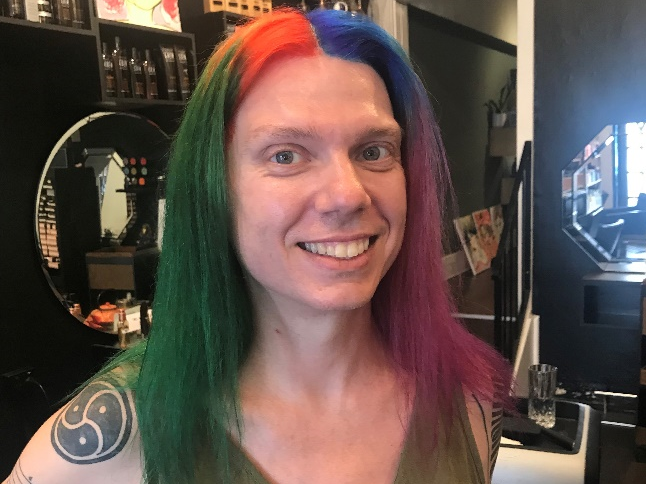“It’s essentially a lifetime achievement award,” Professor Smith? says. “I had a moment where I thought, ‘Am I really old enough for this?’ But it turns out I’m actually the youngest person to receive it.” That small twist of fate captures much of what makes her story remarkable: years of deep investment in the field, packed into a career that’s still very much in motion.
The work Smith? does focuses on mathematical modelling of infectious diseases, especially interventions like vaccination and public health policy. Her research has guided critical decisions, most notably at uOttawa during the early days of the COVID-19 pandemic. When university leadership needed projections to inform campus safety decisions, she stepped up. “I built a model overnight and delivered my findings at 2 a.m.,” she recalls. By 9 a.m., uOttawa had become one of the first universities in the world to shut down in-person activities.
That instinct to act quickly, rigorously and responsibly has been a hallmark of her career. She pioneered the use of impulsive differential equations, equations that display instantaneous changes, in infectious disease modelling, a method now widely used to optimize the timing of interventions like vaccination or water treatment. She has shaped real-world policy too: her early work on human papillomavirus (HPV) vaccination directly contributed to a change in Quebec’s public health guidelines.
But it’s not just the equations that matter to her — it’s the people. “Mentoring students is the most fun part of my job,” she says. She’s worked with everyone from postdocs to undergraduates, turning classroom projects into world-famous papers (her zombie outbreak model, for instance, once became the top news story globally). Through her leadership in the Society for Mathematical Biology, she also directs early-career workshops and mentoring matchups that support emerging researchers through what she describes as “a maze” of academic hurdles.

“Mentoring students is the most fun part of my job.”
Stacey Smith?
— Professor, Department of Mathematics and Statistics
Having come from a working-class background and become the first in her family to attend university, Smith? knows how hard that maze can be. She credits her perseverance to both personal grit and the mentors she eventually found, and she’s now determined to offer that same guidance to others. “Academia tends to self-replicate,” she says. “I want to make the path clearer for those who don’t start with the map.”
She’s also a passionate advocate for diversity and inclusion. A keynote speaker at conferences like the 2SLGBTQ+ in STEM Conference, she often shares her experience as a trans academic to challenge outdated assumptions in science. “It’s not just about gender or motherhood,” she says. “We also need to talk about race, disability and other barriers that rarely get addressed.”
Whether building models to predict the spread of disease or writing popular science books on pandemics, Smith? bridges the rigorous with the relatable. “People used to tell me, ‘I hate math, but I read every damn word of your zombie paper,’” she laughs. “That’s a win in my book.”
Looking ahead, she continues to work on global health challenges, including neglected tropical diseases and pandemic preparedness. She recently welcomed a cohort of undergraduate researchers through the Fields Undergraduate Summer Research Program. And she’s preparing for a sabbatical filled with international collaborations.
“The future of mathematical biology is urgent,” she says. “With climate change, global pandemics and misinformation all on the rise, we need math, and we need people who can explain why it matters.”
With her blend of sharp intellect, creative communication and deep humanity, Smith? isn’t just modelling diseases, she’s modelling change.
Read more
